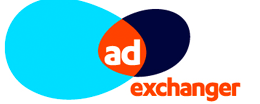Blog
Rise of the Intelligent Publisher
Posted November 10th, 2014 by Jonathan Mendez in Media CPC Performance Publishers Data Analytics First Party real-time | Comments.
Last week was yet another digital advertising event week in New York City – ad:tech and surrounding events. Everyone involved was talking about all the great advances in advertising technology happening right now. Nobody was talking about the advances in publisher technology. Frankly, there isn’t much to talk about. Except that there is.
A certain group of publishers have advanced light years ahead of the current discourse. Advanced beyond the idea of programmatic efficiency. Advanced beyond the idea of creating segments by managing cookies. Advanced far beyond unactionable analytic reports related to viewability. These publishers, many of whom are the most revered names in media, have deployed machine learning and artificial intelligence in their media. They have moved beyond optimizing delivery of impressions to predictive algorithms optimizing ad server decisions in real-time against the performance of their media.
The movement towards publishers understanding and optimizing their media is one of retaining the value of ownership. It may seem obvious that publishers own their media but they don’t really. In reality when the buyer is the one that is optimizing the performance of that media and keeping the learning – even using that learning as leverage in what they are buying – the value in ownership, in fact the entire value of a publishing business, is called into question.
The smartest and most forward thinking publishers understand the stakes. We are entering a world where all media is performance media. Brands are getting smarter about attribution and measurement. They are getting smarter about marketing mix models and seeing the value in digital over other channels. They are gaining insight into how digital influences purchase. In this new world the imperative of publishers to be as knowledgeable about their media as brands is not about competitive intelligence. It is about better performance for these very brands – their customers!
Publishers will not survive in a world where they do not know when, why, where, how and someone is walking into their store. They will not survive if they do not know what customers are buying and how much they are paying. No business could survive that lack of data and intelligence. In fact, no customer really wants that type of store either. Customers want to buy products that serve their intended purpose. Customers want sellers to understand — even predict — what they will be interested in. Customer experience extends to buying media the same as buying anything else. This means marketer performance.
Publishers are ultimately responsible for the performance of their media and the happiness of their customers. Yet, many never think about it or feel helpless to do anything about it. They are the ones that will not make the transition to the performance media economy.
Like all intelligent systems at the core this is about data. Vincent Cerf famously said Google didn’t have better algorithms, they just had more data. The reality is no one has more data than publishers. Each landing on the site, each pageview by a consumer has well over a hundred dimensions of data. That data is fundamental to the structure of the web – it is linked data – and the serialization of it through each site session creates exponentially more of it. Unlike cookie data that does not scale this data is web scale. And it can be captured, organized and activated in real-time.
The data is a window into the consumer mindset and journey. Importantly for publishers it is an explicit first-party value exchange between the publisher and the consumer. It is an exchange of intent for content, of mindset for media. It is what brands want more than anything else. The moment, the zeitgeist, the exact time and place a consumer is considering, researching, comparing, evaluating, learning, and discovering what and where to buy. It is the single most valuable moment in media. It is right time, right place, right message. It is uniquely digital, uniquely first-party and owned solely by the publisher. It is a gold mine that Facebook and Google recognize and they have focused their recent publisher-side initiatives on capturing from publishers either unsuspecting or incapable of extracting the value themselves.
As publishers begin to understand these moments themselves, activate them for marketers and optimize the performance of the media against them, an amazing thing happens. The overall value of the media increases. It increases because of intelligence. It increases because of performance. Most important, it increases because of value being delivered to consumers. It also opens up new budgets. Over time, these systems will get smarter. With more data, publishers can even begin to sell based on performance thereby eliminating a host of issues around impression based buying and increasing overall RPM by orders of magnitude with higher effective CPMs and smarter, more efficient allocations of impressions.
Unfortunately for the hungry advertising trade publications you will not hear these most advanced publishers talking on panels about this or writing blog posts. Does Google talk about Quality Score? Does Facebook talk about News Feed? You will not hear industry trade groups arguing for publishers to sell performance to their customers either. In fact not one panel all of last week discussed first-party data created by the publisher.
Thankfully there is no hype related to this. Only performance. The people who need to know, know. As much as I’d like to share the names of every one of those publishers and agencies with you, more so I want to honor their competitive advantage in the marketplace.
The best publishers have the best content. The best content delivers the best consumers. The best consumers deliver the best performance. This is not new. The rise of the intelligent publisher in collecting, organizing, machine learning, activating and algorithmically optimizing this first-party data stream in real-time is. It’s the most groundbreaking thing in media happening right now and will be for some time because it has swung the data advantage pendulum to the publishers for the first time since data has mattered in digital media.
comments powered by DisqusMore from Our Blog
Yieldbot's First Annual Super Bowl Intent Scorecard
Posted February 3rd, 2015 by Jonathan Mendez in intent, CTR
Yieldbot 2014 Review by the Numbers
Posted December 22nd, 2014 by Jonathan Mendez in
TF-IDF using flambo
Posted July 22nd, 2014 by Muslim Baig in Clojure, Data, flambo, Analytics
Marceline's Instruments
Posted June 25th, 2014 by Homer Strong in Clojure, Data, Storm, Analytics
Yieldbot In the News
RTB’s Fatal Flaw: It’s too slow
From Digiday posted September 23rd, 2014 in Company News
Yieldbot Hands Publishers A New Way to Leverage Their First-Party Data
From Ad Exchanger posted September 23rd, 2014 in Company News
Yieldbot Raises $18 Million to Advance Search-Style Display Buying
From AdAge posted September 23rd, 2014 in Company News
Follow Us
Yieldbot In the News
RTB’s Fatal Flaw: It’s too slow

From Digiday posted September 23rd, 2014 in Company News
I have some bad news for real-time bidding. The Web is getting faster, and RTB is about to be left behind. Now, 120 milliseconds is becoming too long to make the necessary computations prior to page load that many of today’s systems have been built around.
Visit Site
Yieldbot Hands Publishers A New Way to Leverage Their First-Party Data

From Ad Exchanger posted September 23rd, 2014 in Company News
Yieldbot, whose technology looks at a user’s clickstream and search data in order to determine likeliness to buy, is extending its business to give publishers a new way to monetize their first-party data.
Visit Site
Yieldbot Raises $18 Million to Advance Search-Style Display Buying

From AdAge posted September 23rd, 2014 in Company News
Yieldbot, a New York based ad-tech company that lets advertisers buy display ads via search-style keywords, has raised a $18 million series B round of funding
Visit Site
Much Ado About Native Ads

From Digiday posted December 5th, 2013 in Company News
The most amazing thing about the Federal Trade Commission’s workshop about native advertising Wednesday morning is that it happened at all. As Yieldbot CEO Jonathan Mendez noted...
Visit Site
Pinterest Dominates Social Referrals, But Facebook Drives Higher Performance [Study]
![Pinterest Dominates Social Referrals, But Facebook Drives Higher Performance [Study]](../../assets/logos/logo-marketingland.png)
From Marketing Land posted October 3rd, 2013 in Company News
Publishers in women’s programming verticals such as food and recipes, home and garden, style and health and wellness have found a deep, high volume source of referral traffic from Pinterest.
Visit Site
Pinterest Sends Your Site More Traffic, Study Says, but Maybe Not the Kind You Want

From Ad Age posted October 3rd, 2013 in Company News
Pinterest may have quickly arrived as a major source of traffic to many websites, but those visitors may click on the ads they see there less often than others.
Visit Site
